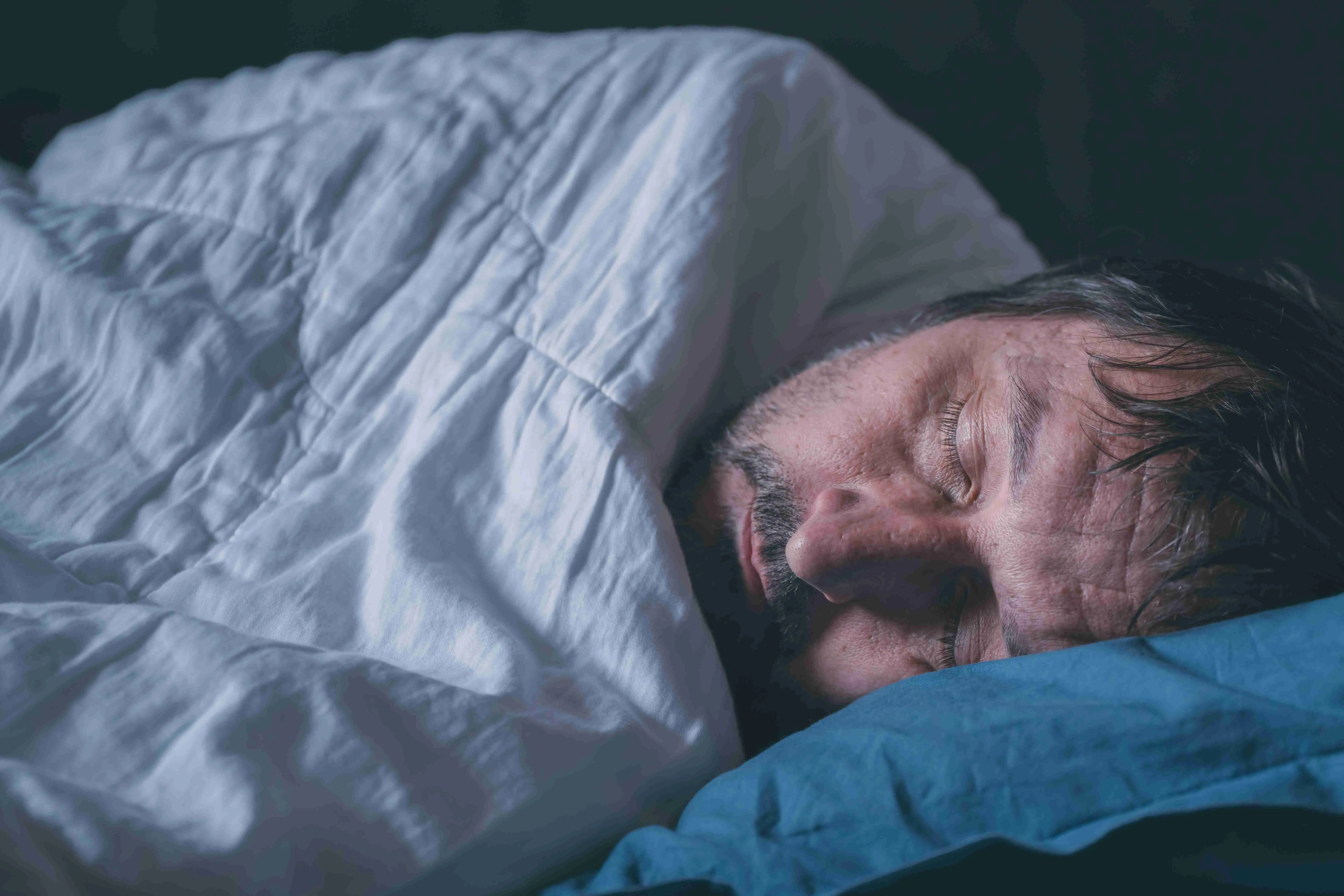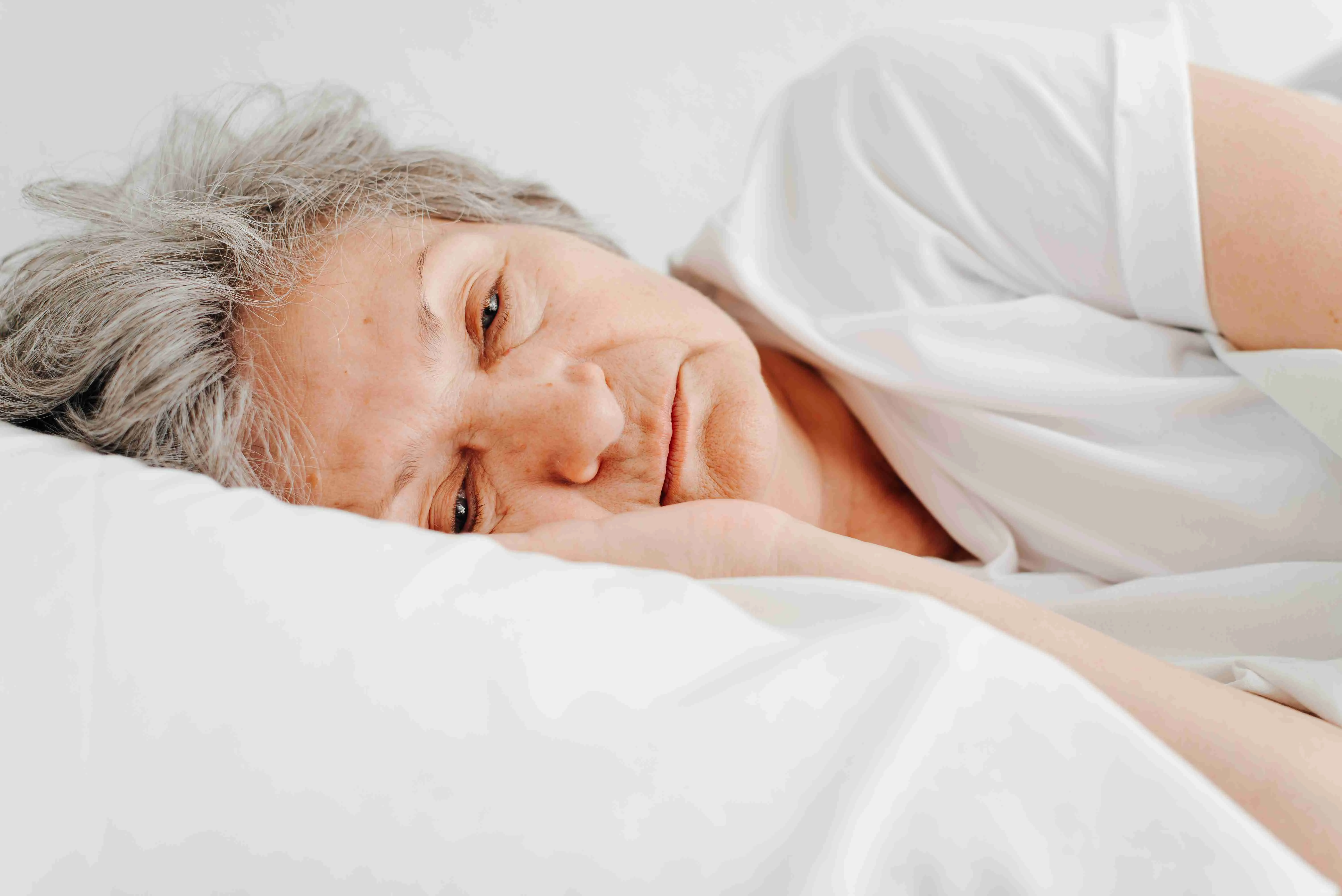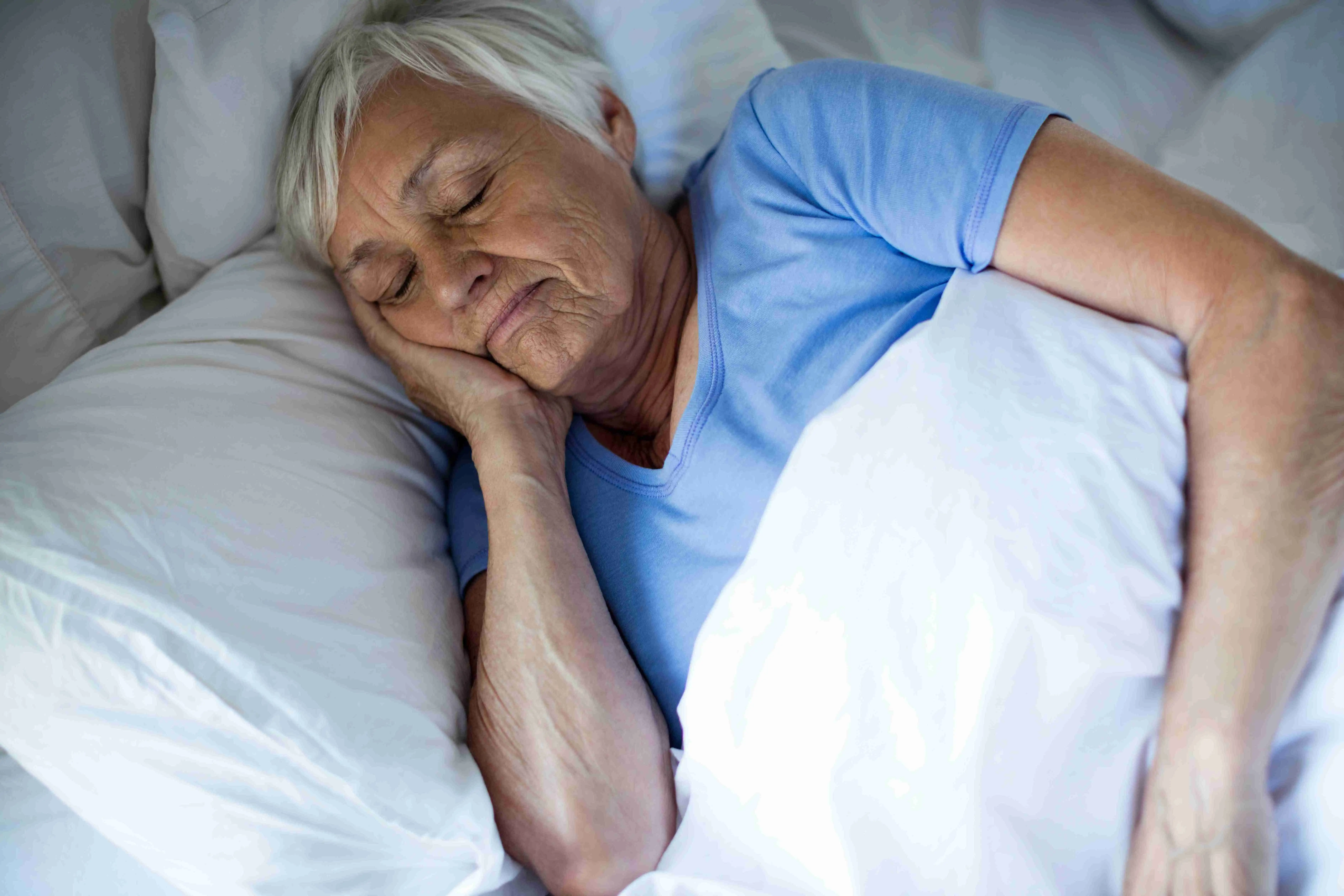Sleep is essential for good health, yet many people experience difficulties with it. Various factors, including health conditions, can disrupt sleep and negatively affect both mental and physical health. Parkinson's disease is one such condition that significantly impacts sleep, contributing to issues like nightmares, sleep fragmentation, and sleep disruption.
In this article, we explain how Parkinson's affects sleep and the sleep disorders prevalent in Parkinson's and offer some practical suggestions to improve the quality of sleep. Understanding how Parkinson's disease and sleep are related helps manage the disease's physical and emotional effects, including sleep efficiency and sleep maintenance.
Understanding Parkinson's Disease

Parkinson's disease is a progressive central nervous system disorder that primarily affects movement. It occurs when nerve cells in the brain that produce dopamine, a neurotransmitter that controls muscle movement, begin to break down and die.
The disorder causes a range of motor and non-motor symptoms that can interfere with daily life as well as overall quality of life.
Symptoms of Parkinson’s Disease
Understanding the major symptoms of Parkinson's can assist in identifying the disease at an early stage and controlling its progression effectively.
- Stiff Muscles: Muscle rigidity or stiffness is one of the hallmark symptoms of Parkinson's. It occurs when the muscles tense up and become difficult to move, causing them to be painful and limiting the range of motion. It can be felt anywhere, but legs, arms, and neck are most common. Over time, this stiffness may transform simple tasks such as dressing or moving from one position to another into challenging ones.
- Tremors: Tremors or shaking is also a common symptom of Parkinson's disease. It typically starts in one hand or on one side of the body and can worsen over time. The tremors are most noticeable at rest and may fade with voluntary movement. The "resting tremor" is one of the earliest symptoms of Parkinson's disease and may be especially noticeable in the fingers or hands.
- Slow Movements: Bradykinesia is the slowness of movement that occurs in patients with Parkinson's. It can appear as an inability to initiate movements, walking with slow, shuffling steps, or a slowed reaction time to normal stimuli. Bradykinesia can make individuals have difficulty with simple functions, such as buttoning a shirt or getting out of bed, leading to a progressive loss of independence.
- Problems with Balance: As Parkinson's progresses, it can lead to coordination and balance problems. The body's ability to keep itself upright is compromised, making a person more likely to fall. People with Parkinson's also develop a stooped posture, and reflexes, like the ability to stop a fall, are slower or weaker. This can be dangerous, especially while walking on uneven surfaces or during situations requiring quick changes.
How Parkinson’s Disease Affects Sleep

Sleep disturbances are prevalent in people with Parkinson's disease and have the potential to impact their overall quality of life significantly. They are usually multifactorial, determined by the disease itself, the nature of the symptoms' progression, and the medication prescribed to manage it.
Patients often struggle with sleep fragmentation, which interrupts their natural sleep cycles and keeps them from reaching the deep, restorative rest they need. This can also lead to nightmares and, in some cases, sleep attacks, where individuals unexpectedly fall asleep during the day due to a lack of quality sleep at night.
Knowing how Parkinson's affects sleep and what problems it causes is essential for managing motor and non-motor symptoms effectively.
Changes in Sleep Architecture Due to Parkinson’s
Parkinson's disease disrupts the body's normal sleep architecture, or the patterns of sleep stages (like light sleep, deep sleep, and REM sleep) that take place throughout the night. Individuals with Parkinson's experience a reduction in the number of hours of deep (slow-wave) sleep and REM sleep, both of which are necessary for physical and mental restoration.
Deprivation of restorative sleep results in increased fatigue and can worsen motor symptoms, further challenging patients' ability to manage activities of daily living. Parkinson's patients also experience more fragmented sleep, with multiple awakenings during the night, so they are unable to reach the deeper stages of sleep necessary for full recovery.
Sleep Problems Caused by Parkinson’s Disease
Parkinson's disease and sleep problems lead to a variety of issues, making it difficult for individuals to get restful sleep.
- Chemical Changes in the Brain: Parkinson's affects the brain's production of dopamine, a neurotransmitter that is responsible for sleep-wake cycles. Low levels of dopamine cause disturbed sleep-wake cycles and irregular sleep patterns. It usually becomes harder for patients to fall asleep, stay asleep, or get restorative sleep, leading to a poor quality of sleep overall.
- Mental Health Challenges: People with Parkinson's disease frequently experience mood disorders such as depression and anxiety. These mental illnesses can interfere with sleep by making it harder to relax and fall asleep at night. Anxiety can also cause racing thoughts, and depression can cause low energy and sleep issues such as oversleeping or insomnia. Both of these disorders make sleep more difficult to manage and require combined treatment approaches to improve quality of life.
- Excessive Daytime Sleepiness (EDS): Patients with Parkinson's experience excessive daytime sleepiness, a condition where the patient feels very sleepy during the day and has difficulty staying awake or being alert. EDS can be caused by inadequate nighttime sleep, medication, or the progression of Parkinson's. This leads to daytime napping, which also disrupts the sleep-wake cycle and reduces the quality of nighttime sleep.
- Fragmented Sleep: Fragmented sleep is one of the most common problems of patients with Parkinson's disease. It is waking up over and over at night, typically due to pain, nocturia (frequent nighttime urination), or difficulty sleeping in a comfortable position. This results in impaired quality of sleep because patients are unable to maintain long periods of undisturbed sleep, which in turn leads to excessive daytime fatigue and worsening symptoms.
Sleep Disorders Associated with Parkinson's Disease
When Parkinson's disease and sleep disorders are accompanied, they have an impact on general well-being. These are typically related to the physical and mental changes caused by the disease and tend to get worse over time.
- Obstructive Sleep Apnea (OSA): OSA occurs when partial or complete blockage of the airway during sleep causes pauses in breathing. OSA is common in Parkinson's patients and leads to increased fatigue, cognitive impairment, and daytime sleepiness. CPAP treatment, which should maintain the patency of the airway, is common for managing sleep apnea.
- Insomnia: Parkinson's disease insomnia can manifest as difficulty falling asleep, staying asleep, or waking up too early. It is caused by various factors, including discomfort from muscle stiffness, medication side effects, or mental health issues like depression and anxiety. Treatment involves a combination of changing lifestyles, cognitive behavioral therapy, and, in some cases, medication.
- Restless Leg Syndrome (RLS): RLS is characterized by an overwhelming urge to move the legs, which is commonly accompanied by a crawling or tingling sensation. Restless legs syndrome can disrupt sleep by causing repeated movements of the legs at night, preventing the person from reaching the deeper stages of sleep. RLS is more common in Parkinson's patients and is treated with medications like dopamine agonists or other treatments.
- REM Sleep Behavior Disorder: REM Sleep Behavior Disorder is when the normal paralysis of the muscles during REM sleep is disrupted, and patients act out their dreams. This can be in the form of kicking, punching, or falling out of bed. Because these movements can potentially result in injury, RBD requires safety measures in the bedroom and, in some cases, medication such as clonazepam or melatonin to regulate the symptoms.
- Circadian Rhythm Disruptions: Parkinson's disease disrupts the body's natural circadian rhythm, which causes disturbances in sleep-wake cycles. The patients will often have difficulty falling asleep during the night but be excessively sleepy during the daytime. This tends to result in irregular sleep patterns, where individuals feel the need to nap during the daytime, which further disrupts nighttime sleep and contributes to poor sleep quality.
- Nocturia: Nocturia, or the need to urinate frequently during the night, is another common issue in Parkinson's patients. It could be caused by the disease itself or by medication side effects. Waking up frequently to use the bathroom disrupts sleep, making it difficult for patients to get uninterrupted rest.
- Sleep Apnea and Breathing Issues: Parkinson's patients will often experience respiratory problems at night, including sleep apnea and Cheyne-Stokes respiration (a disordered breathing pattern in which breathing cycles alternate between periods of apnea and rapid breathing). Sleep disturbances can fragment sleep patterns, prevent the patient from reaching the deep, restorative stages of sleep, and result in excessive daytime fatigue. CPAP therapy and oxygen therapy can help manage breathing issues.
The Impact of Sleep Loss on Parkinson’s Symptoms
Sleep plays an important part in managing Parkinson's disease symptoms. When sleep is disrupted or insufficient, it has significant consequences for physical and mental health. Not only do symptoms of Parkinson's disease and sleep deprivation worsen symptoms, but they can also accelerate the disease.
Worsening of Motor Symptoms
Sleep deprivation can exacerbate the motor symptoms of Parkinson's disease, such as tremors, rigidity, and bradykinesia (slowness of movement). The muscles cannot relax fully when the body doesn't get enough restorative sleep, and hence there is more stiffness and pain.
Moreover, the lack of deep sleep, when the body repairs and restores itself, leads to increased motor impairment, making the patients find it more challenging to perform daily tasks, walk, or balance.
Cognitive and Emotional Effects
Emotional well-being and cognitive function are also significantly impacted by sleep deprivation. Parkinson's patients already experience decreasing cognition as the disease advances, and poor sleep will worsen conditions such as memory problems, confusion, and inability to concentrate. Mood swings, irritability, and increased anxiety or depression are some of the emotional impacts of sleep deprivation.
Lack of sleep can interfere with the brain's ability to regulate emotions, making it harder to cope with the frustration and stress that are often associated with Parkinson's.
Increased Risk of Hallucinations and Confusion
Among the more serious consequences of chronic sleep deprivation in Parkinson's disease is the increased risk for hallucinations and confusion. Sleep deprivation and medication taken for the treatment of Parkinson's can lead to cognitive disturbances, causing patients to experience vivid dreams, delusions, or even visual hallucinations.
Not only does this worsen the patient's mental state, but it also increases the risk of falls and injury. Proper sleeping is highly essential to reduce all these risks and enable patients to have better mental stability and clarity.
Managing Sleep Problems in Parkinson’s Disease

Sleep issues are common among those with Parkinson’s disease, often exacerbating motor and cognitive symptoms. Managing these problems involves a combination of lifestyle changes, sleep hygiene practices, medication adjustments, and targeted strategies to improve sleep quality.
Adopt a Healthy Sleep Routine and Sleep Environment
A consistent sleep schedule and a calming bedtime routine can significantly improve sleep quality by reducing disruptions.
- Keep a Regular Sleep Schedule: Parkinson's patients should attempt to sleep and wake up at the same time every day. This approach will regulate the body's internal clock and promote quality sleep. Avoid irregular sleeping times as they increase fatigue, promote daytime sleepiness, and affect overall health.
- Create a Supportive Sleep Environment: Keep the room dark, quiet, and cool to facilitate comfortable sleeping. Individuals with Parkinson's often become more sensitive to light or noise, so blackout curtains or a sleep mask can block external light, and a white noise machine or earplugs can reduce noise disturbance.
- Create a Relaxing Pre-Bedtime Routine: A relaxing pre-bedtime routine is crucial in informing the body that it is time to unwind. Relaxing activities such as reading a book, listening to soothing music, or doing relaxation exercises such as deep breathing or meditation are advisable for Parkinson's patients, improving sleep latency and helping relax tense muscles that might keep them awake.
- Choose the Right Mattress and Bedding: A medium-firm mattress offers optimal spinal alignment and reduces the pain caused by muscle stiffness and rigidity. Pressure-relieving pillows can be utilized to support the head and neck to reduce muscle strain. Cooling bedding, like moisture-wicking sheets, will help regulate the body temperature.
- Choose an Appropriate Sleeping Position: The best sleeping position for Parkinson's patients is typically on the side or back. Sleeping on the side or back with proper pillow support helps maintain spinal alignment and reduces muscle rigidity and tremors. Side sleeping also helps keep the body more stable during the night, which reduces the risk of injury from involuntary movements.
- Safety Considerations for Parkinson’s Symptoms: Clear the bedroom of hazards such as sharp objects or obstacles. If needed, use an adjustable bed to help with positioning and reduce muscle strain. Memory foam mattresses or strategic pillow placement can alleviate discomfort and reduce involuntary movements.
Exercise, Stretching, and Relaxation Techniques
Physical activity, gentle stretching, and relaxation techniques help reduce muscle stiffness and anxiety, making it easier to sleep.
- Daily Physical Activity: Regular physical activity, such as walking, swimming, or light weightlifting, can also improve sleep by reducing daytime tension and increasing nighttime relaxation. One should aim to achieve moderate activity during the day but not close to bedtime, as it tends to overstimulate the body and make it harder to fall asleep. Learn more about the Best Time to Exercise for Better Sleep.
- Gentle Stretching Before Bed: Gentle stretching before bedtime can significantly ease muscle stiffness and prepare the body for restful sleep. Focus on stretches that target those areas most affected by Parkinson's, such as the neck, shoulders, and legs.
- Relaxation Practices: Techniques like progressive muscle relaxation, deep breathing, or mindfulness meditation can ease stress and tension, promoting better sleep by calming the body and mind.
Managing Light Exposure
Proper exposure to light, especially in the morning, helps regulate circadian rhythms and improves sleep-wake cycles.
- Morning Light Exposure: Morning exposure to sunlight is important in regulating the circadian rhythm. Exposure to morning sunlight resets the body's internal clock, indicating that it's time to be awake and alert. Try to get at least 20–30 minutes of natural sunlight exposure in the morning to improve sleeping patterns.
- Light Therapy: For Parkinson's patients who are unable to get proper natural light, light therapy using a lightbox or specialized light therapy lamps can be utilized to control the circadian rhythm by mimicking sunlight. Light therapy is beneficial for patients experiencing disruptions in their sleep-wake cycle or excessive daytime sleepiness.
- Nighttime Light Control: Prevent exposure to bright or blue light from screens (TVs, computers, cell phones) at least one hour before going to bed. Attempt to use dim lights or lamps with warm-bulb colors to create a relaxed atmosphere. Learn more about How Electronics Affect Sleep.
Medication Management and Pain Relief
Adjusting medications and managing pain effectively can reduce sleep disturbances and help Parkinson’s patients get the rest they need.
- Adjust Medication Timing: Parkinson's medications can result in sleep-disrupting side effects, such as daytime sleepiness or difficulty falling asleep at night. For instance, taking Sinemet at night can sometimes interfere with sleep patterns, making it harder to fall asleep or stay asleep. Consult your doctor to modify the timing and dose of medications to minimize such side effects.
- Sleep Medications and CPAP for Sleep Apnea: Sleep apnea patients may require sleep medications and a CPAP machine, which keeps the airway open during sleep and reduces disturbances due to breathing issues. Consult your health provider to determine the most suitable treatment based on individual needs.
- Pain Management: Relief from pain through physical therapy, heat or cold treatment, and medication can reduce pain and improve the quality of sleep. Muscle stiffness treated by certain therapies and medications can also provide a comfortable and restful night's sleep.
- Cognitive Behavioral Therapy for Insomnia (CBT-I): CBT-I is a non-medication therapy that can help Parkinson's patients overcome insomnia. It involves learning how to handle sleep-related behaviors and thoughts, such as developing a regular bedtime, handling negative sleep thoughts, and using relaxation exercises
- Track Sleep Patterns: Keeping a sleep journal will enable you to identify habits that are likely disrupting sleep quality. Recording the time you go to bed, the quality of your sleep, and any disruptions throughout the night will provide your healthcare provider with helpful insight.
FAQs
How does Parkinson’s affect sleep?
Parkinson's disease disrupts sleep by affecting the brain's regulation of sleep-wake cycles. It often causes insomnia, REM sleep behavior disorder (RBD), and excessive daytime sleepiness (EDS), adding to motor symptoms and overall fatigue.
What are the best sleep medications for Parkinson's patients?
Melatonin is typically used to control sleep-wake cycles in Parkinson's patients. Physicians prescribe medications such as clonazepam to control sleep disorders. Always consult a health expert for specific treatment strategies to avoid interaction with Parkinson's medication.
Why do Parkinson’s patients have trouble sleeping?
Parkinson's patients experience sleep problems due to changes in brain chemistry, side effects of medication, and symptoms like tremors, stiffness of muscles, and pain. These interfere with sleep and cause insomnia, fragmented sleep, and excessive daytime sleepiness.
At what stage do Parkinson’s patients sleep a lot?
Parkinson's disease patients may develop excessive daytime sleepiness at any time but more severely as the disease advances. Disrupted nighttime sleep, medications, and the progression of symptoms all contribute to frequent napping during the daytime and increased need for sleep.
What is the best sleeping position for Parkinson’s disease?
Side or back sleeping with proper pillow support is beneficial in keeping the spine aligned and suppressing tremors. This reduces pain and stiffness, resulting in high-quality sleep in Parkinson's patients and reducing the risk of injury from involuntary movements.
Conclusion
Sleep management in Parkinson's disease is important for physical and mental health. Sleep disorders, even though they are neglected, play an important role in the quality of life and other symptoms of the disease. Patients can enhance the quality of their sleep and overall health by understanding Parkinson’s-related sleep problems and practicing methods like setting regular sleep habits, creating a comfortable sleeping environment, and managing medication and pain.
With the right approach, for instance, the use of effective therapy, lifestyle adjustment, and personalized treatment plans, patients suffering from Parkinson's disease can mitigate the negative effects of sleep problems. Prioritization of sleep not only decreases motor symptoms but also enhances mental functioning, mood, and general performance during the day.
Dom Abraham
As the lead content writer at Sleepiverse. Dom pours his heart into writing mattress reviews, bedding product reviews, and medically-reviewed health articles. Dom is from Portugal and likes to spend his free time writing on the beach as it gives him a sense of comfort. Aside from writing mattress reviews in front of the soothing beach view, Dom likes to experiment with new amazing food ideas.


